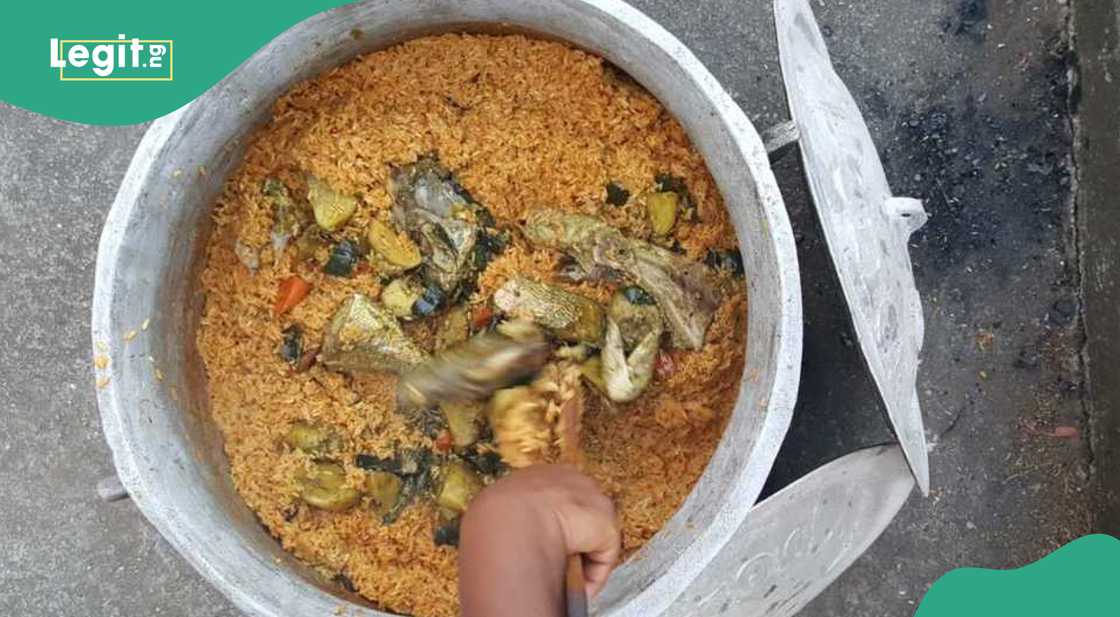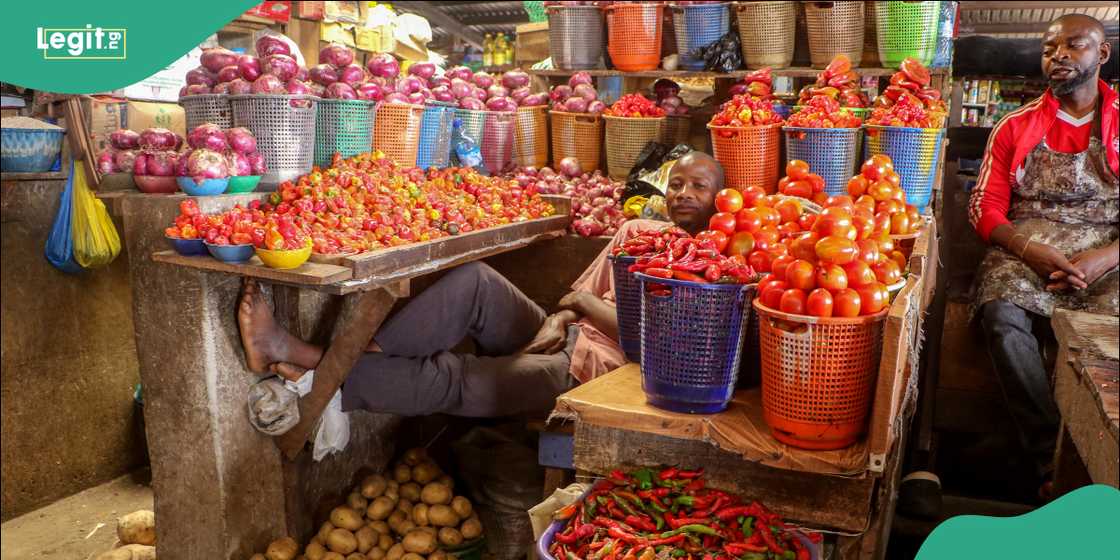Cost of Cooking a Pot of Jollof Rice in Nigeria Rises to New High, Now 40% of Minimum Wage
- A new report has revealed that the average cost of making a pot of jollof rice for a family of five has risen sharply
- Data published by SBM Intelligence shows that the cost of jollof in the second quarter of 2025 rose by 153% in one year
- The Jollof Index, which tracks the prices of core ingredients needed to cook jollof rice, is used to measure the rising cost of living for Nigerian households
Legit.ng journalist Dave Ibemere has over a decade of experience in business journalism, with in-depth knowledge of the Nigerian economy, stocks, and general market trends.
The average cost of preparing a pot of Jollof Rice for a family of five has increased by 153% between March 2023 and June 2025, reaching N28,066
This is according to SBM Intelligence’s latest Jollof Index report for Q2 2025, titled “The Crushing Cost of a Pot."

Source: Getty Images
The latest increase means a single pot of jollof rice now consumes approximately 40.09% of Nigeria's new minimum wage of N70,000.
In some parts of the country, the cost is even higher.
The report stated:
The National Average Jollof Index surged from N10,881.54 in March 2023 to N12,372.69 in June 2023, marking a 13.7% increase in three months.
"This momentum continued, reaching N16,955.38 by March 2024, N19,036.92 by May 2024, and a staggering N28,066.31 by June 2025, reflecting an extraordinary 158% increase from March 2023 to June 2025.
"This rapid escalation underscores pervasive macroeconomic factors such as significant currency devaluation, rising energy costs, and widespread supply chain disruptions."
States with the highest prices
The report identifies Bauchi, Calabar Municipal, and Wuse II in Abuja as inflation hotspots, with Bauchi recording the highest cost at N41,050 per pot, which is a 587% increase since 2016.
In Bauchi alone, pepper prices jumped 433% from N1,500 in August 2024 to N8,000 by June 2025, while onions surged 300%.
Other urban centres also saw steep increases. Lagos’ Balogun Market reported an average of N23,591 per pot by June 2025, driven by high urban demand and logistics costs.
In Abuja’s Wuse II, the index hit N33,900, spurred by spikes in prices for vegetable oil and seasonings.s

Source: Getty Images
Ingredients price increase
Ingredient-specific data shows widespread price increases across markets:
- Pepper: up by 433% in Bauchi
- Onions: up by 300% in Bauchi
- Tomatoes: up by 150% in Bodija
- Vegetable oil: up by 68% in Kano
- Salt: up by 75% in Wuse
- Seasoning (Knorr): up by 71.4% in Bodija
- Turkey: up by 50% in Bauchi
- Beef: up by 20.8% in Calabar Municipal
A caterer and mother of three in Lagos told SBM researchers:
"The escalating food inflation in Nigeria, strikingly reflected in the figures you have shown me, is profoundly impacting households and businesses, forcing drastic adjustments to daily living.
"For those in the catering industry, like myself, the volatility of prices has become a significant hurdle."
States with the highest food inflation in Nigeria
Earlier, Legit.ng reported that the National Bureau of Statistics revealed that Nigeria's inflation rates.
The latest data released by the NBS showed that Borno, Niger, and Plateau, which are facing security challenges, have the highest inflation rates
Additionally, the highest food inflation rates were recorded in Borno, Bayelsa, and Taraba states
Source: Legit.ng




